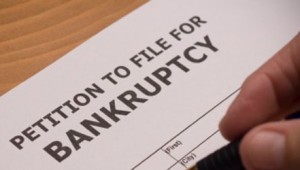Dear Liz: I have credit card debt, federal student loans and a car loan. I’m trying to save for a house, but I also know I should save for retirement. How do I figure out what to tackle first?
Answer: If you have a 401(k) with a match at work, take advantage of it first. That’s free money that typically equals an instant 50% to 100% return on your contributions. Then pay off the credit card debt. You normally don’t need to be in a rush to pay off federal student loans. Your car loan is probably OK to pay off as scheduled too, assuming you got a decent interest rate.
After the credit card debt is vanquished, beef up your savings. Eventually you’ll want a separate emergency fund, but for the moment you can earmark the money for your down payment, knowing you can raid it in an emergency.
If you don’t have a 401(k) match or even a workplace plan — about half of workers don’t — you should still save something, but your priority will be to pay off the credit cards as fast as you can. Once that’s done, you can open a traditional IRA or a Roth IRA. The traditional IRA will give you a tax break, but withdrawals will be taxed and may be penalized. If you contribute to a Roth, you don’t get to deduct your contribution but you can withdraw your contributions at any time without taxes or penalties. This makes a Roth a kind of emergency fund-slash-house fund. Ideally, you would leave the money alone until retirement, but it’s good to have a Plan B until you can build up your emergency and down payment funds elsewhere.
 Today’s top story: How to find a bankruptcy attorney. Also in the news: What consumers need to know about annuities, signs you need a new financial advisor, and what millennials should know about life insurance.
Today’s top story: How to find a bankruptcy attorney. Also in the news: What consumers need to know about annuities, signs you need a new financial advisor, and what millennials should know about life insurance. Today’s top story: The problem with how whole life insurance is sold. Also in the news: How to save money on your commute, debt snowball vs debt avalanche, and how to stop senior citizen financial scams.
Today’s top story: The problem with how whole life insurance is sold. Also in the news: How to save money on your commute, debt snowball vs debt avalanche, and how to stop senior citizen financial scams.  Today’s top story: How to determine what your car payment should be. Also in the news: Itemizing vs. standard deductions, what to do with old electronics, and quirky ways to save money this summer.
Today’s top story: How to determine what your car payment should be. Also in the news: Itemizing vs. standard deductions, what to do with old electronics, and quirky ways to save money this summer.  If you haven’t already, expect to hear from your financial advisor soon about a great new investment opportunity for your IRA.
If you haven’t already, expect to hear from your financial advisor soon about a great new investment opportunity for your IRA.